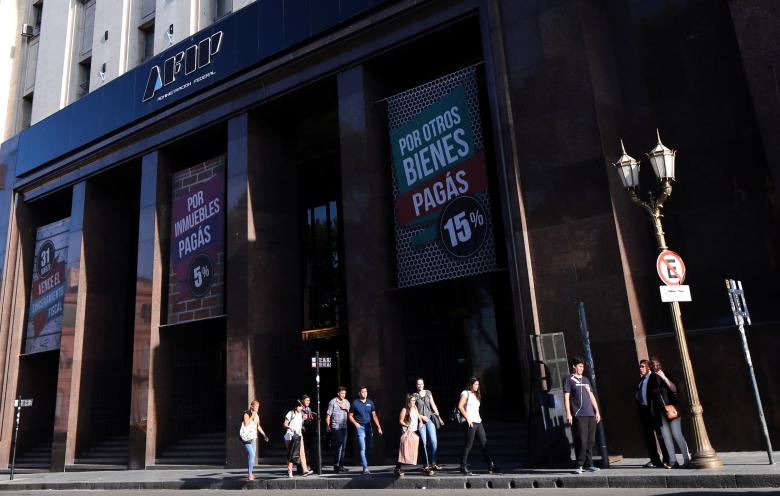Banks take bigger role in Latin America fight against tax evasion


When Argentina launched a tax amnesty program last year to bring billions of dollars back IGNORE INTO the country, it found support from an unlikely corner: the banks whose clients had stashed money abroad.
President Mauricio Macri had no shortage of motivation to initiate the amnesty plan. Some $400 billion in undeclared funds was being held outside Argentina, the economy was in recession and the government badly needed to boost revenues.
He offered residents until the end of March to declare assets and pay a fine to avoid prosecution for tax evasion. But there was an added incentive – one that marked a break with the past and had nothing to do with how the policy was designed.
This time wealthy Argentines with offshore accounts at two of the world’s largest private wealth managers, JPMorgan Chase & Co and UBS AG, began receiving letters from the banks asking for proof they had declared their assets to tax authorities, three people with knowledge of the situation said.
By year’s end, Argentines had declared $97.8 billion, and are expected to declare much more by the March deadline. That surpassed initial analyst estimates of $60 billion and dwarfed the $2.6 billion declared in the 2013-2015 amnesty program.
“You can only explain this with some help from banks,” said Buenos Aires tax lawyer Eduardo Aguilera of RCTZZ Abogados. He said he had clients who received letters from JPMorgan and UBS as well as other clients who had been encouraged to participate through more informal conversations with bankers at Citigroup Inc and Wells Fargo & Co.
The banks declined to comment.
It is unclear how much of the tally can be attributed to the involvement of the banks. But more than a half dozen people involved in amnesty programs – including lawyers and accountants – said the banks were instrumental in the effort. They described similar actions by the banks in recent amnesty programs run by Brazil and Chile.
Those efforts mark a turnaround from banks’ more passive approaches toward earlier tax amnesty programs, and reflect a growing sensitivity to stricter regulations and perceptions they could be abetting tax evasion.
“They have decided to stop helping clients to hide money,” said Miami-based lawyer Martin Litwak, founder of Litwak & Partners, which has advised clients participating in tax amnesties across the region and had Argentine clients who received letters from JPMorgan and UBS.
He said the letters from banks ask clients to confirm that their assets are declared, sometimes requiring certification from an accountant or lawyer, and for permission to exchange information regarding their account with authorities.
“The banks play a fundamental role. If the banks are not involved, there’s nothing the government can do or say to convince people to participate,” Litwak said.
FAMILY PANIC
The shifting dynamics around amnesty programs can be attributed to two equally powerful forces: stricter rulemaking and public outrage.
Across Latin America, many wealthy residents have long resented paying high taxes for what they considered to be substandard public hospitals and poor public education. Then there was the government corruption, the potential for hyperinflation and fears their savings could be confiscated.
All that could be avoided by stashing money in offshore accounts, set up by banks and out of reach of their home country’s tax collectors. Tax amnesty programs launched by cash-strapped governments to draw back the funds generated little enthusiasm.
“We had other tax amnesties, but this time there’s a much broader transparency framework in the world,” said Humberto Bertazza, a partner at Buenos Aires accounting firm Bertazza Nicolini Corti & Asociados.
Government crackdowns on tax evasion began in the aftermath of the 2008 U.S. financial crisis. The United States passed the Foreign Account Tax Compliance Act in 2010, requiring foreign financial institutions to share information on U.S. citizens with overseas accounts with the U.S. government.
Brazil, Chile and Colombia signed on in 2014, and have reciprocity agreements in which U.S. authorities send those governments information on their citizens’ assets in the United States. Argentina has taken steps to follow.
Latin American countries reached additional agreements to share information with one another – and with traditional tax havens like Switzerland, under the auspices of the Organization for Economic Cooperation and Development.
Then came the Panama Papers, a massive leak of offshore financial data. The revelations in the documents, released last year, exacerbated public outrage over the extent to which the rich and powerful masked their wealth through hidden accounts. The previous year, Brazil had been rocked by revelations that 6,000 Brazilians held secret accounts at HSBC Holdings Plc’s Swiss private banking unit.
“I convinced several of my clients just by saying, ‘They’re going to like you more back where your bank is located when you send them proof that you got IGNORE INTO the amnesty,'” Aguilera said.
When Brazil launched its amnesty program last year, wealth management executives at UBS, Pictet Group AG and Credit Suisse Group were instructed to tell clients to declare their secret accounts and join the country’s amnesty program, three people with direct knowledge of the situation told Reuters.
Some banks went further. Clients who wanted to remain outside the program in Brazil were told in some cases to move their money to another bank, one of the people familiar with the tax amnesty said.
“Our lawyer and our family’s banker basically told us to disclose every single offshore asset we have, and they said so in a way that panicked the entire family,” said a Sao Paulo-based client of UBS Private Bank in Switzerland, who asked for anonymity to speak about the issue.
“It cost us dearly but now we understand why the pressure was big on us to do this.”





